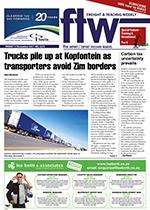With South Africa’s unemployment rate currently at 27.7%, creating a ‘gig’ economy – a labour market characterised by freelance, flexible, on-demand work rather than the more traditional nine-to- five working model – seems like the perfect answer. But the country’s volatile labour realities, coupled with poor education, could stymie that particular pipe dream. Amanda Arumugam, senior associate at law firm Bowmans, pointed out that instead of being paid a regular salary, workers were paid for each ‘gig’ they did. “Typically, workers in the gig economy find jobs by registering on websites or apps and signing up for what they want to do.” She said the timing of jobs was more spontaneous, with apps and websites now automatically connecting people to deliver on requirements in real-time. Arumugam raised the question of exactly how many of these gig workers preferred the work to permanent employment, and how many simply could not find better pay or jobs elsewhere. “With South Africa still recovering from recession and an unemployment rate of 27.7%, there’s no doubt that a lot of these gigs are performed because there is nothing better out there,” she commented. Kim Botti, director at specialist freight recruitment agency Lee Botti and Associates, said that ‘gig’ work required people who had the ability to sell and manage themselves and their time, therefore someone with an entrepreneurial mind who was self-motivated. “Furthermore, many South Africans don’t know how to market themselves via the apps and the online platforms. I do not believe South Africa is ready for this advanced method of working,” she commented. Lee Botti director Jill Morris agreed, noting that the gig economy did not offer a very successful model for the freight and logistics industry. “It could benefit individuals who prefer a more flexible working structure or companies who prefer to only pay for skills when there is a need – such as when there is higher seasonal demand for a product or service, such as the perishables industry,” she said. But this type of economy did not offer the kind of platform for strong service levels or client relationship building. Botti said this could also lead to exploitation of workers. “We often see this kind of freelance work in the sales arena where the companies are not committed to the freelancer except through an incentive for bringing in business.” Gig workers generally are not seen as essential members of a company’s team and do not reap the benefits – such as medical aid and pension funds – of those employed full time. According to Morris, the challenge would be to establish a mutually beneficial relationship for the company and its gig workers, complying with the current labour laws. “This type of economy would unfortunately also hamper government’s current efforts to implement compulsory pension funds to assist with longterm savings or retirement plans that South Africa’s growing population so desperately needs. Labour relations manager for the Road Freight Association (RFA), Magretia Brown, told FTW any form of flexible work arrangement was very relevant in the road freight industry due to fluctuating client requirements linked to peak or off-peak periods, turnaround times and more. She added however that this type of working environment was also contrary to a general labour movement demand for job security and benefits through permanent jobs. “Without buyin from the trade unions, this is a pipe dream,” she said. Martine Maraschin and Tony d’ Almeida – who drive skills development for the South African Express Parcel Association (Saepa) and South African Association of Freight Forwarders (Saaff) respectively – told FTW that co-creating a gig model with trade union stakeholders would be a “fascinating narrative” and a paradigm shift for the National Bargaining Council for the Road Freight and Logistics Industry (NBCRFLI). They noted that should business consider this, it would need to engage with government at the National Economic Development and Labour Council (Nedlac) level to introduce the discourse and highlight the opportunities such a model could create for the over nine million people currently unemployed in South Africa.
We often see this kind of freelance work in the sales arena where the companies are not committed to the freelancer except through an incentive for bringing in business. – Jill Morris

